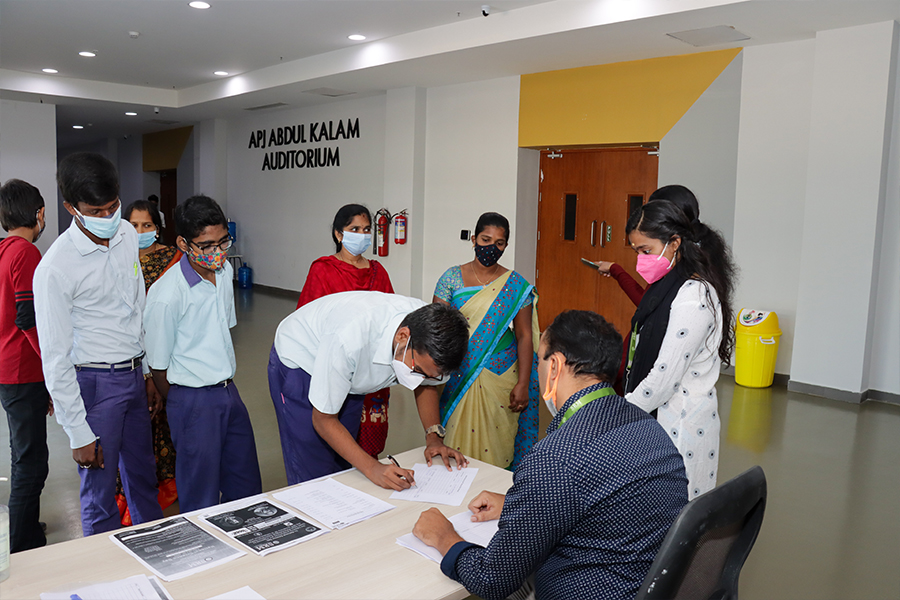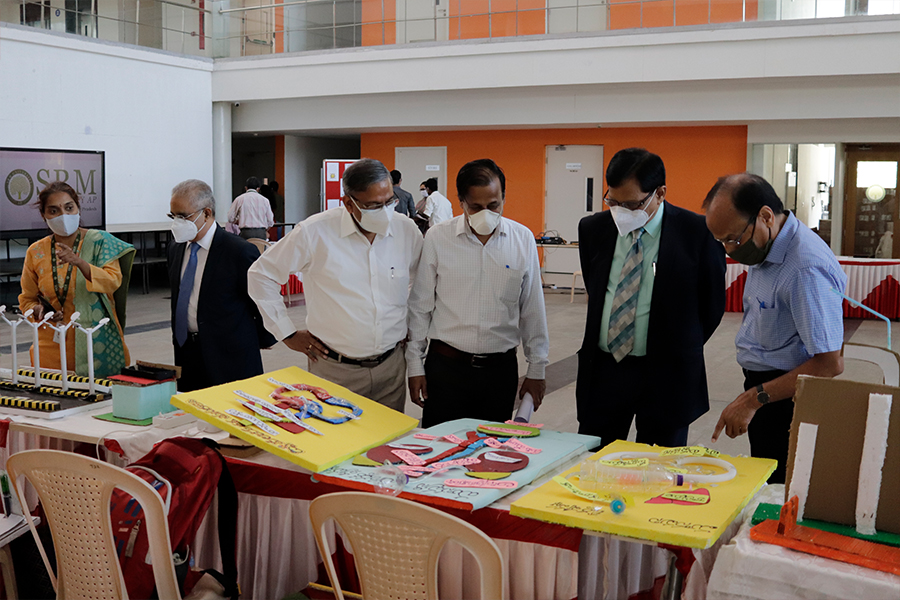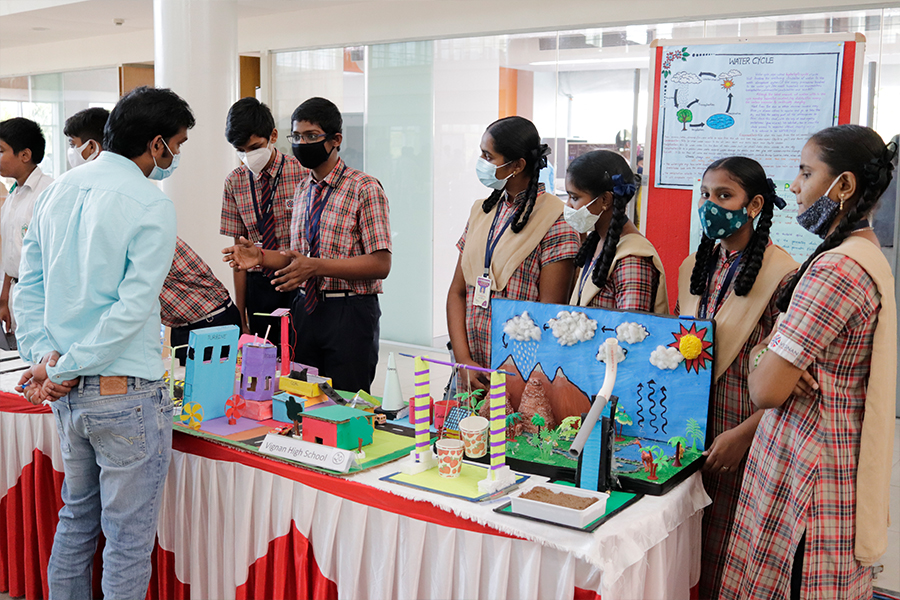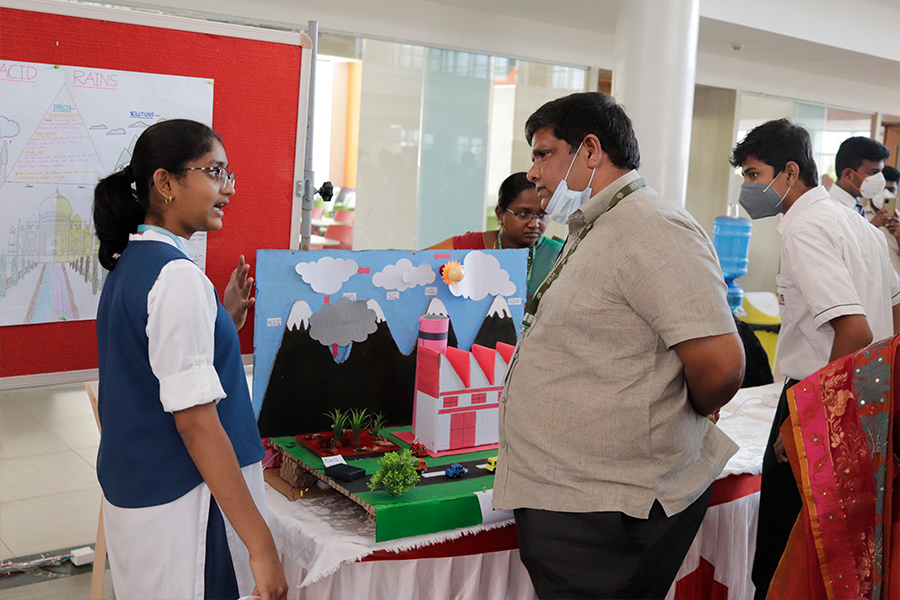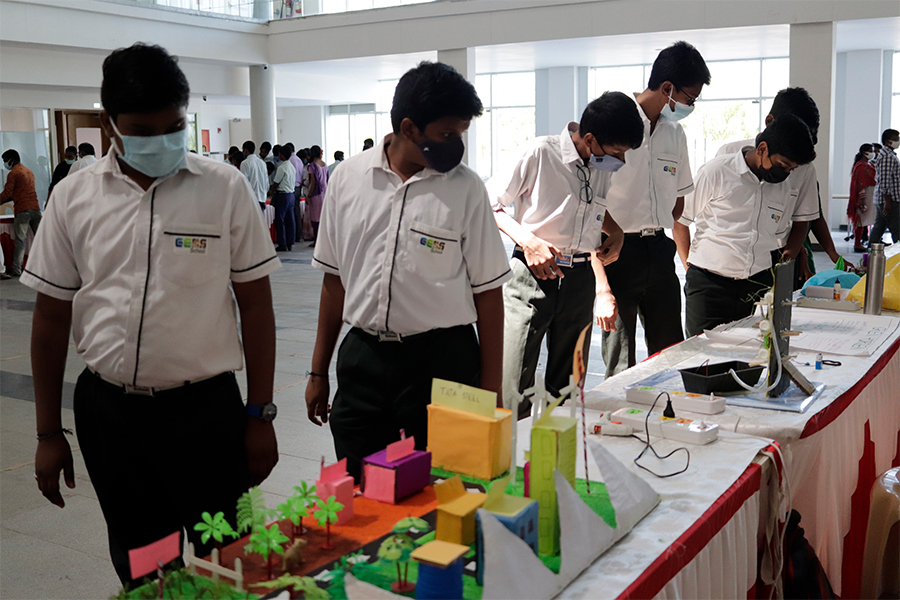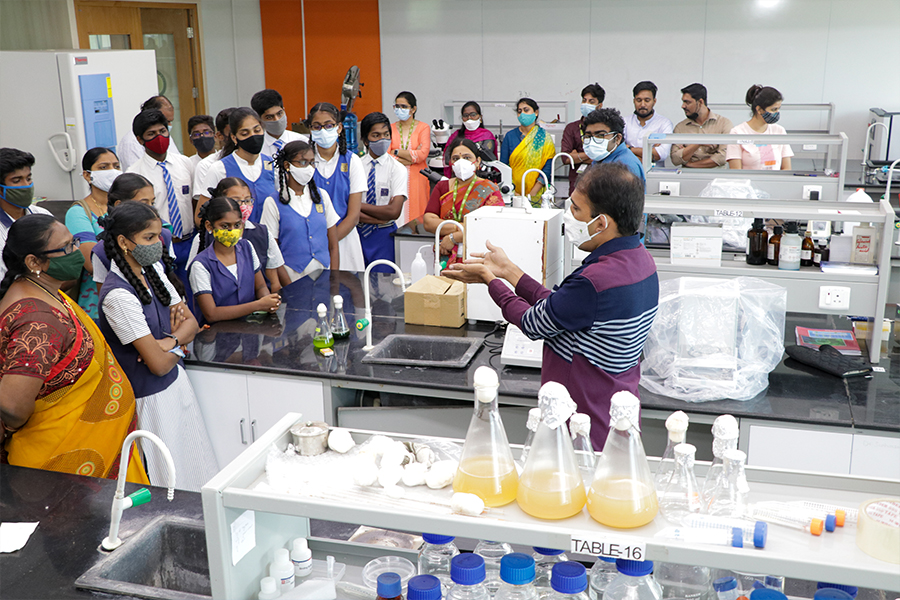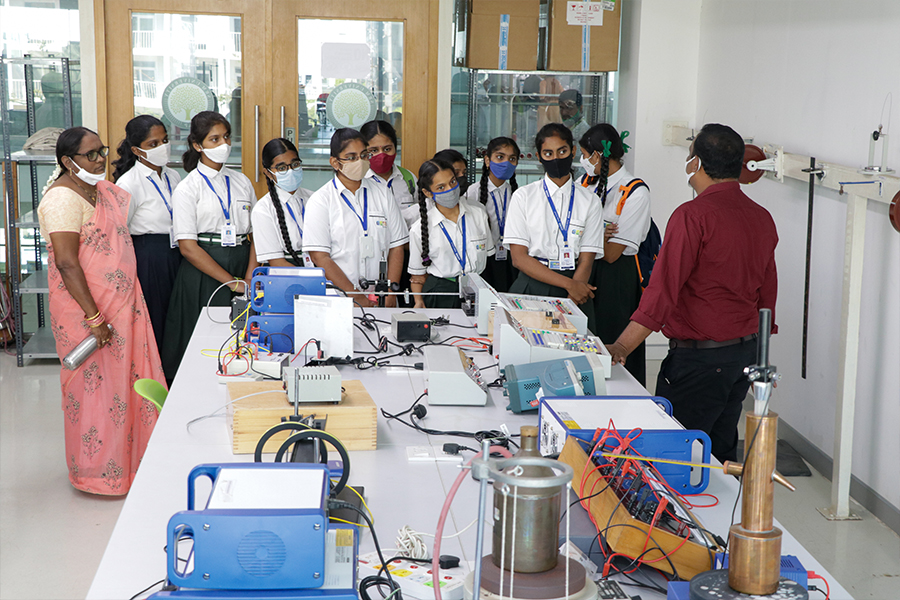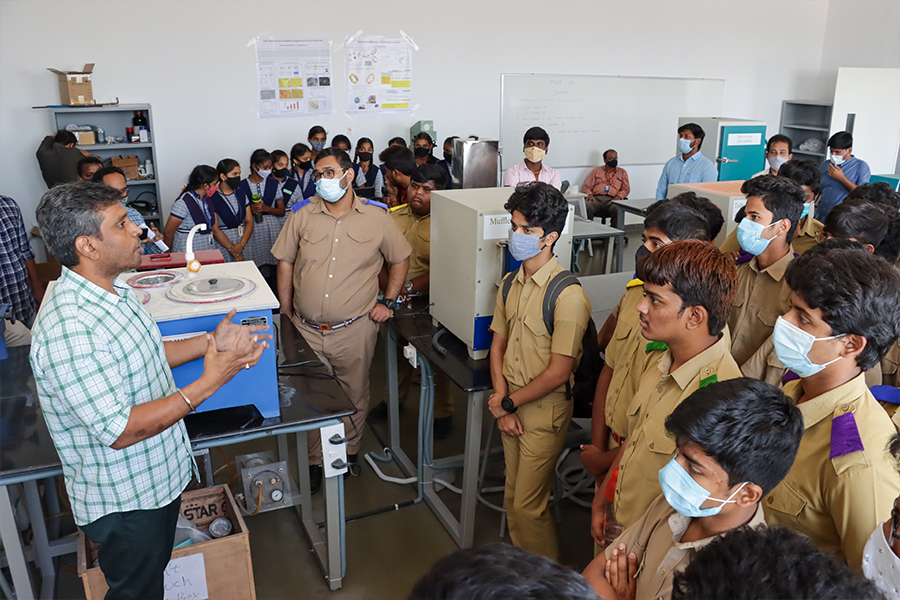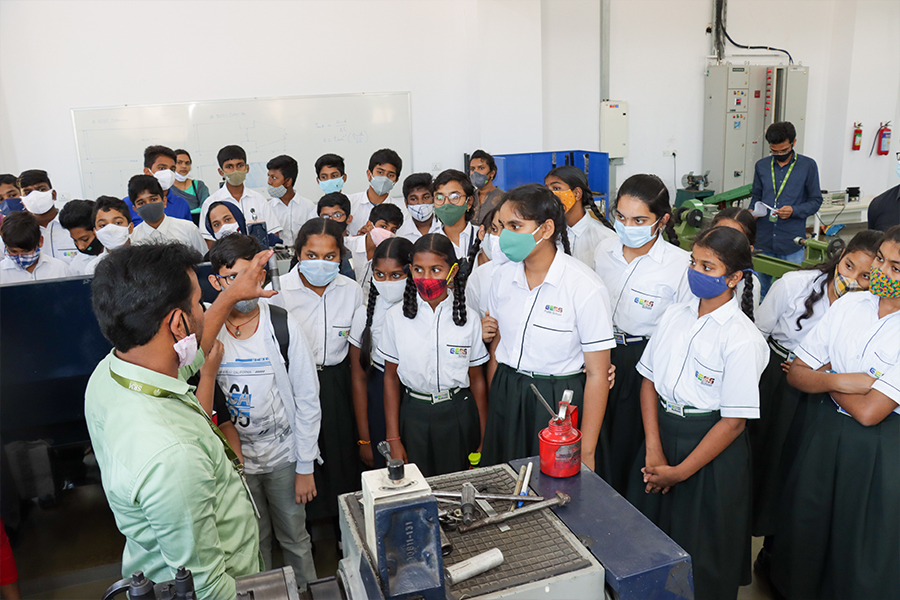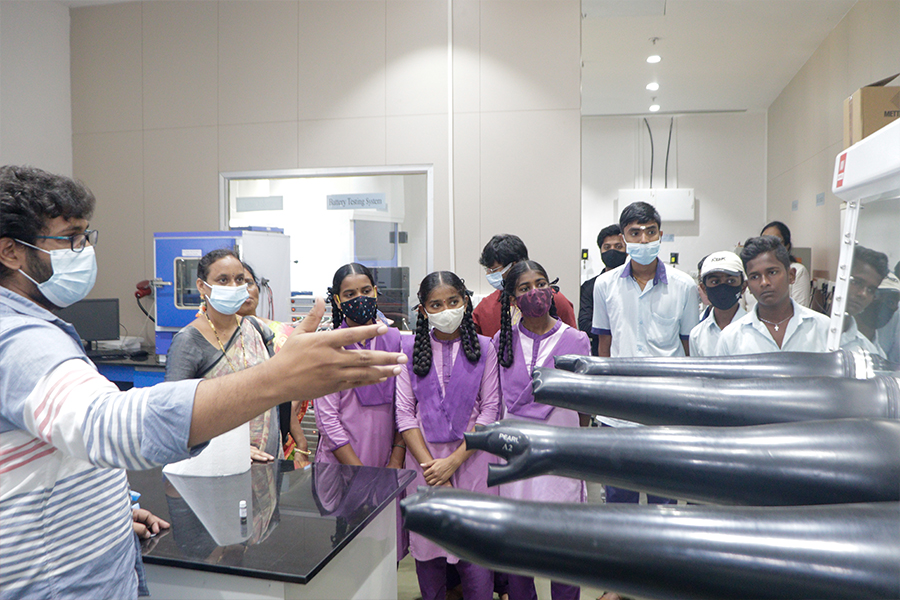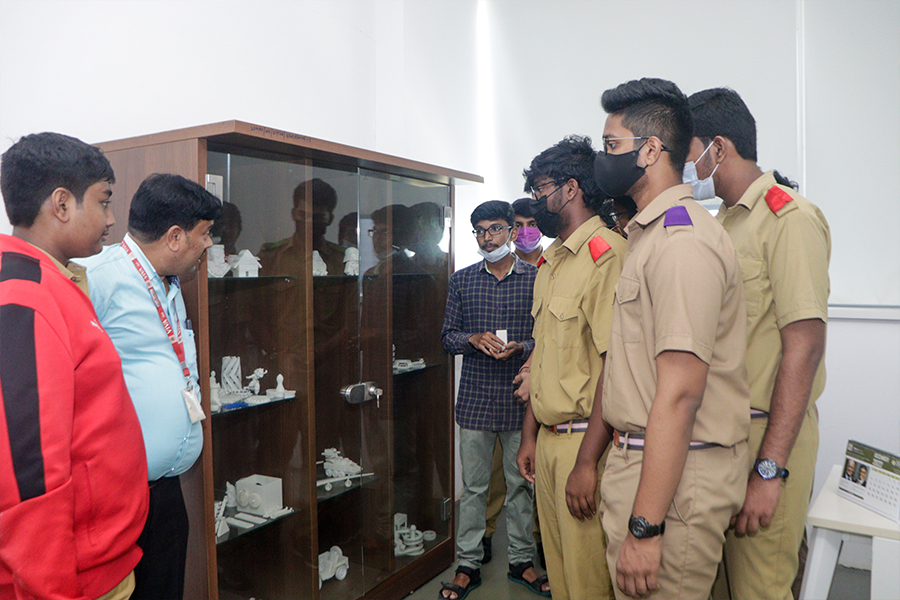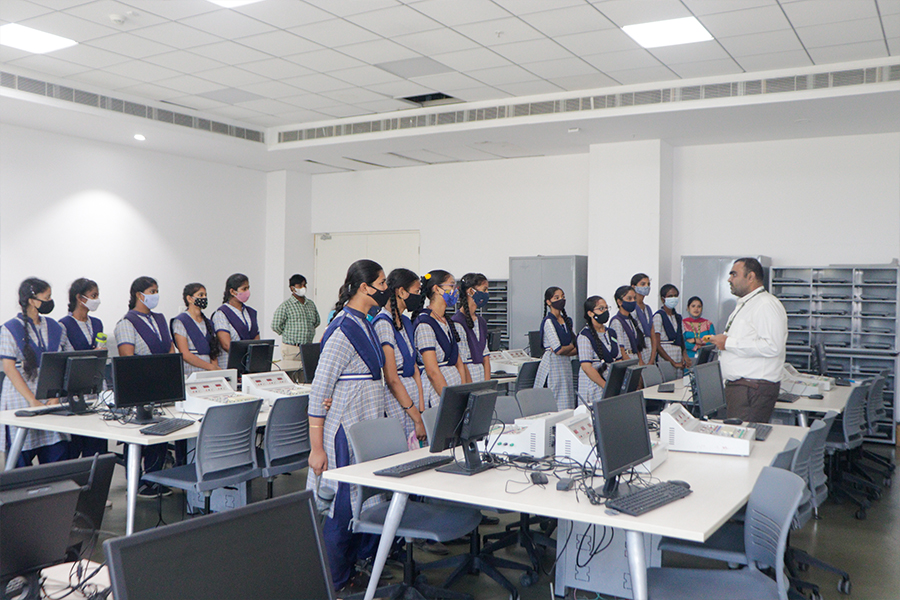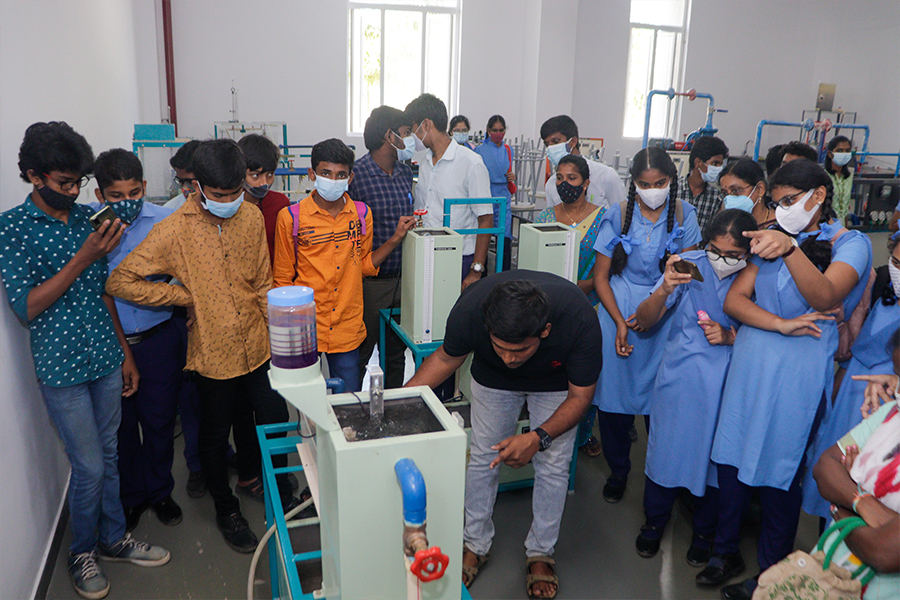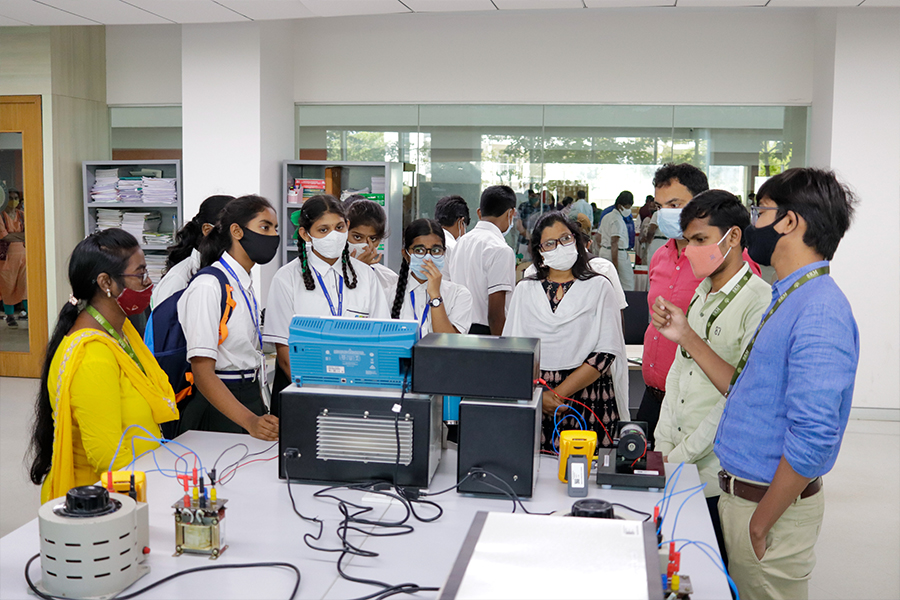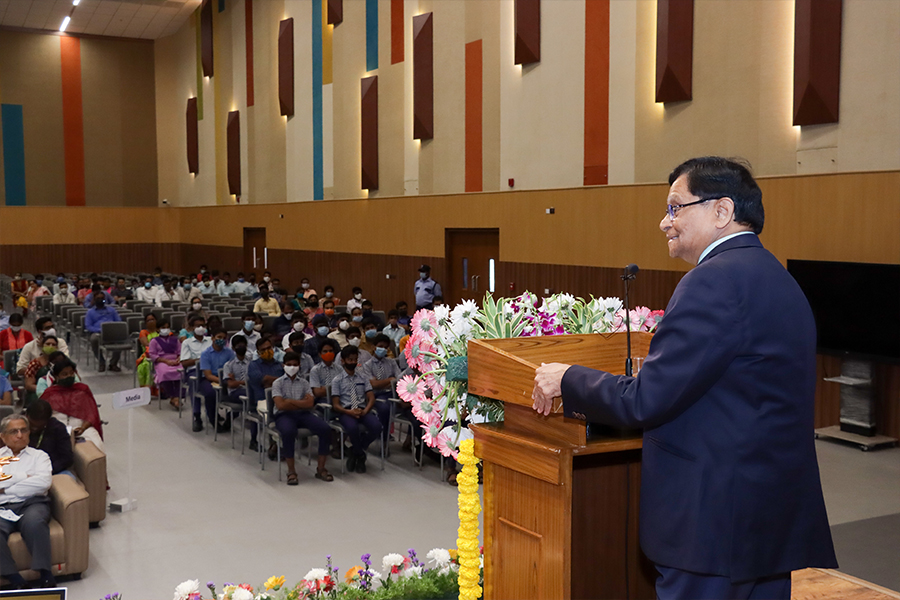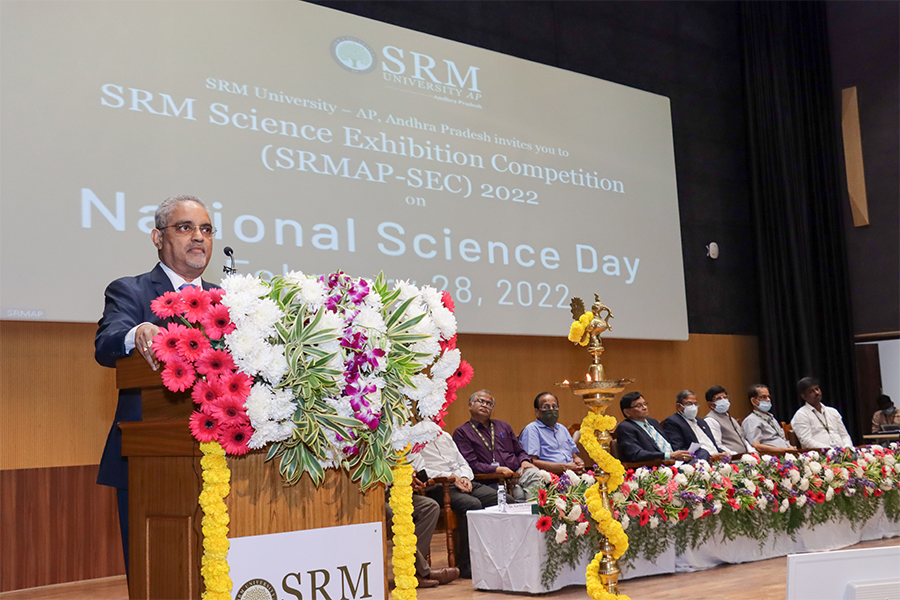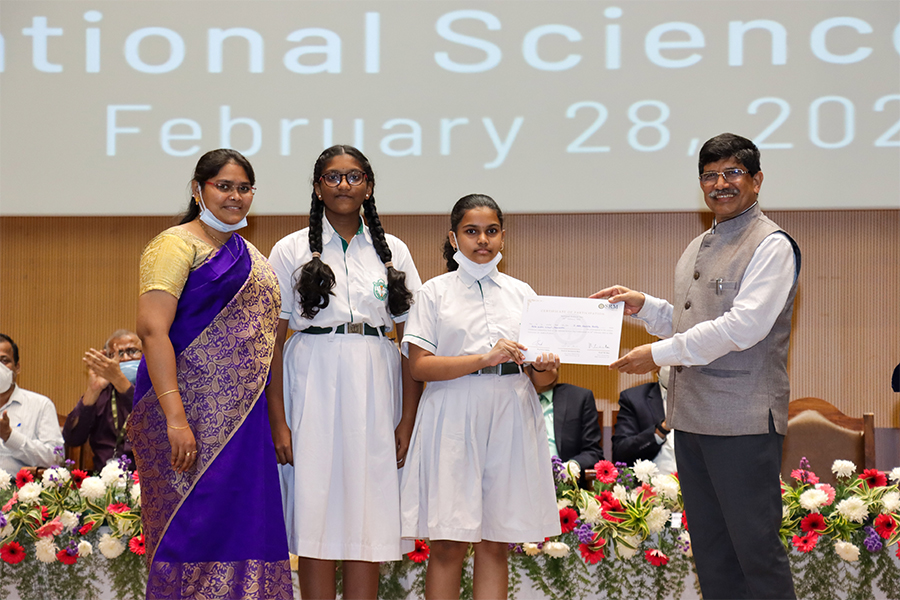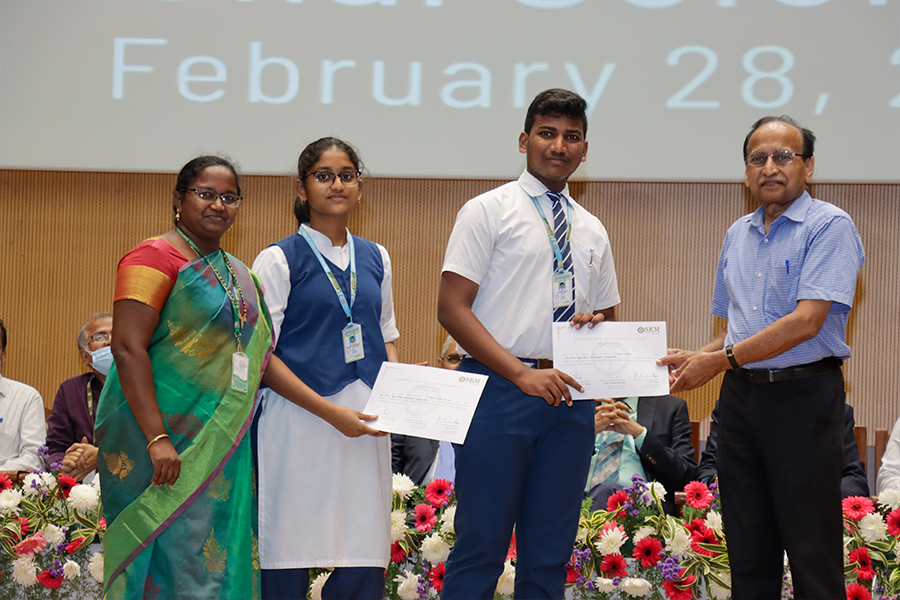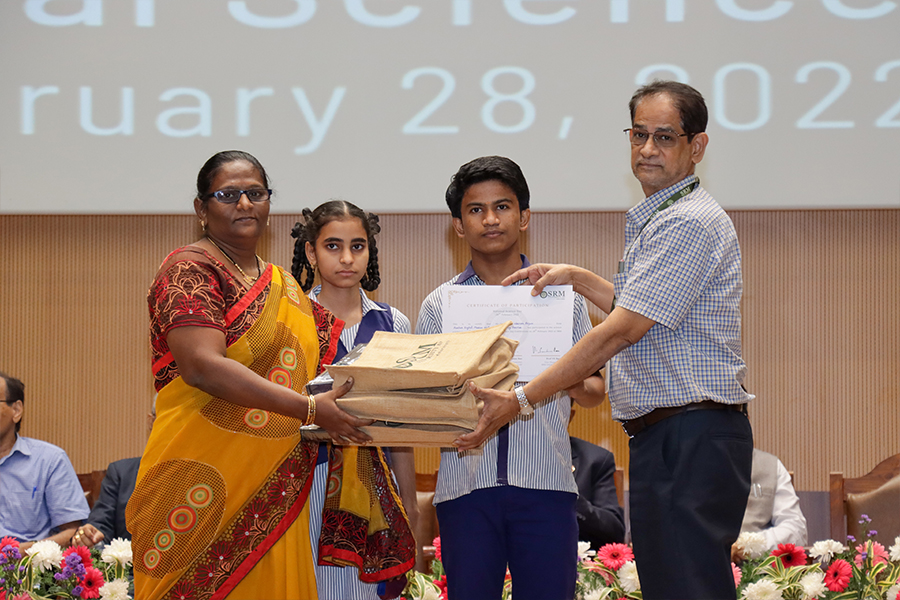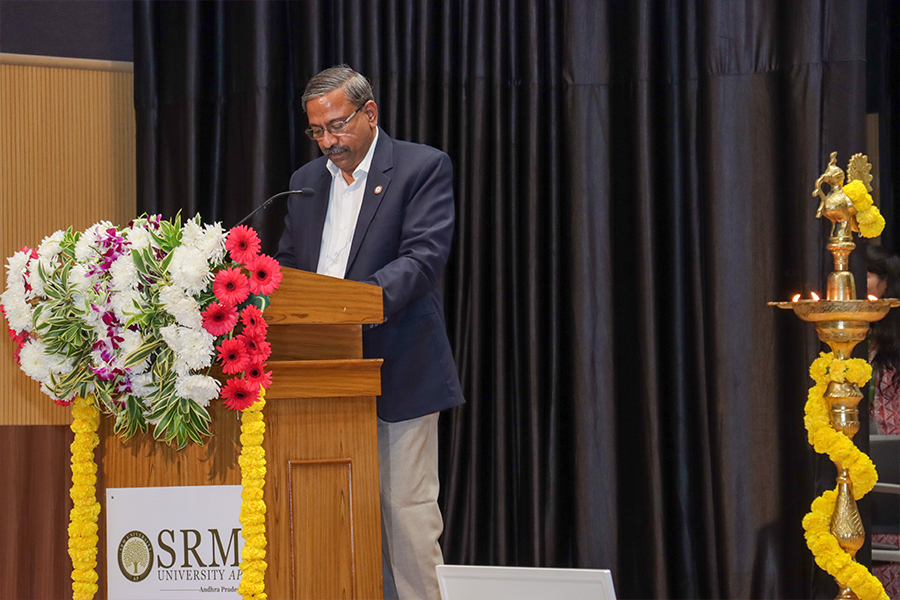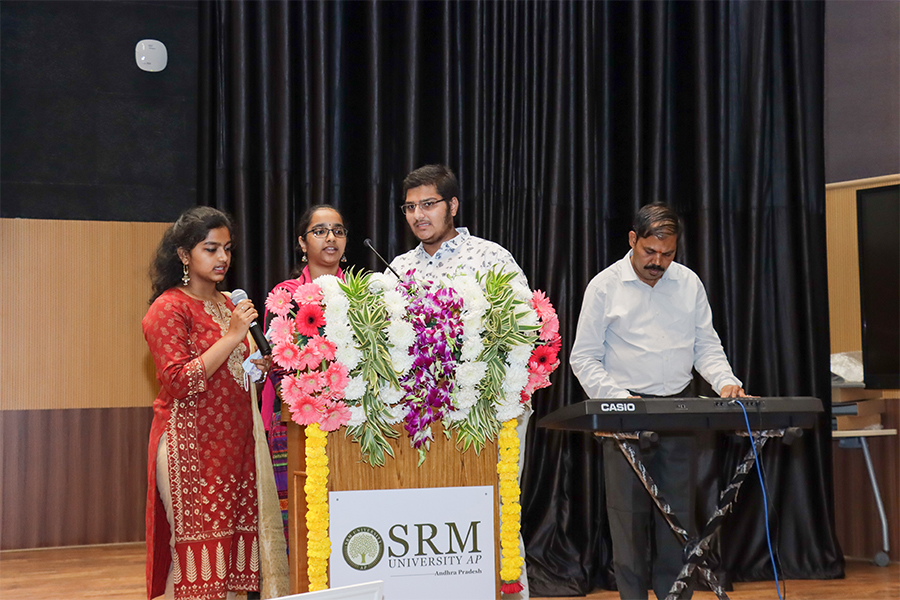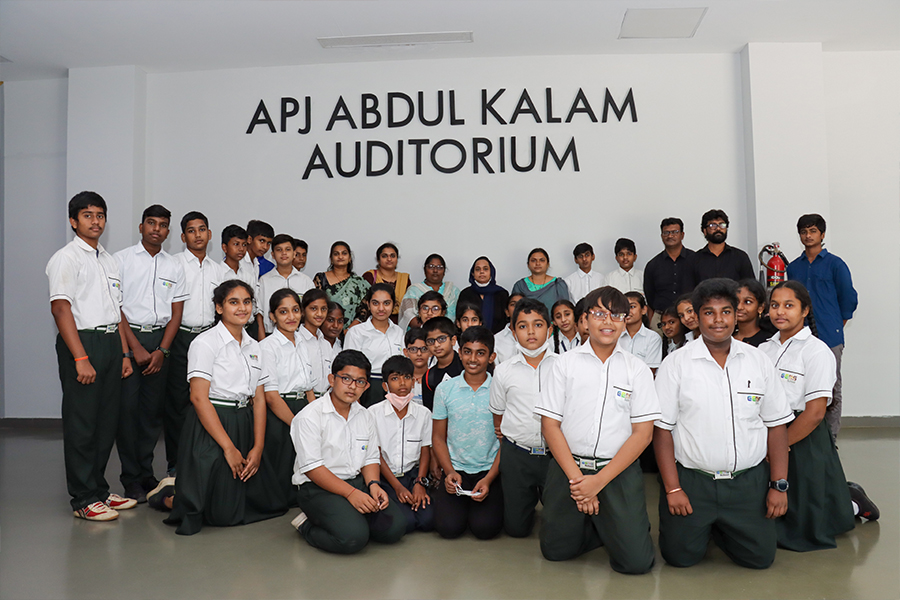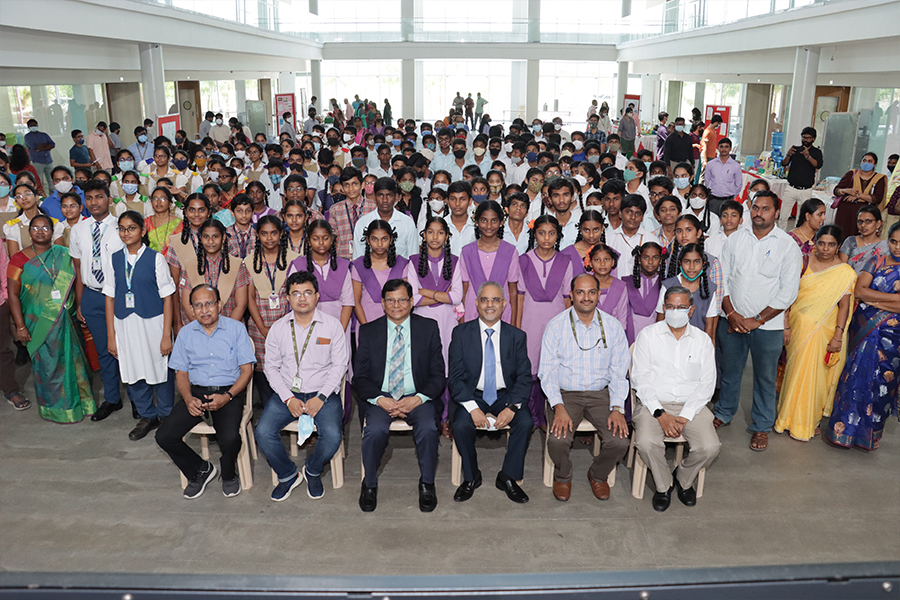All Management Events
- Australian universities – Intakes, scholarships, guidelines for SOP & visa preparation March 3, 2022

Statement of Purpose is required for both university applications and visa purposes. Knowledge about SoP, intakes, scholarships can increase the chances of admission for an aspirant. Since we understand the significance of studying abroad, let us hear from Mr Avinash Darla as he talks about the prerequisites for studying in Australia.
The office of International Relations and Higher Studies organises the session with Mr Avinash on the topic “Study in top Australian universities – Intakes, scholarships, guidelines for SOP & visa preparations” as a part of the Higher Studies series. All students are invited to participate in this informative session on Friday, March 11, 2022, at 3.00 pm.
About the Speaker
Mr Avinash Darla is the Branch Manager of IDP Education, India. He has 11+ years of experience in the Education Industry- Training, Overseas & Domestic Education. He has served as the Business Head of Abroad Avenue, Branch Manager of Akash Education Pvt Ltd, State Head of Fliplearn Education India, etc. He has also received multiple certifications from esteemed organisations like Qualified Education Agent Certification – PIER International, Australia; Study & Live in UK Certification – British Council & Future Learn; Business Strategies Education & Development- University of Hertfordshire, UK and many more.
Continue reading → - National Science Day: Enkindling scientific spirit in young minds March 2, 2022
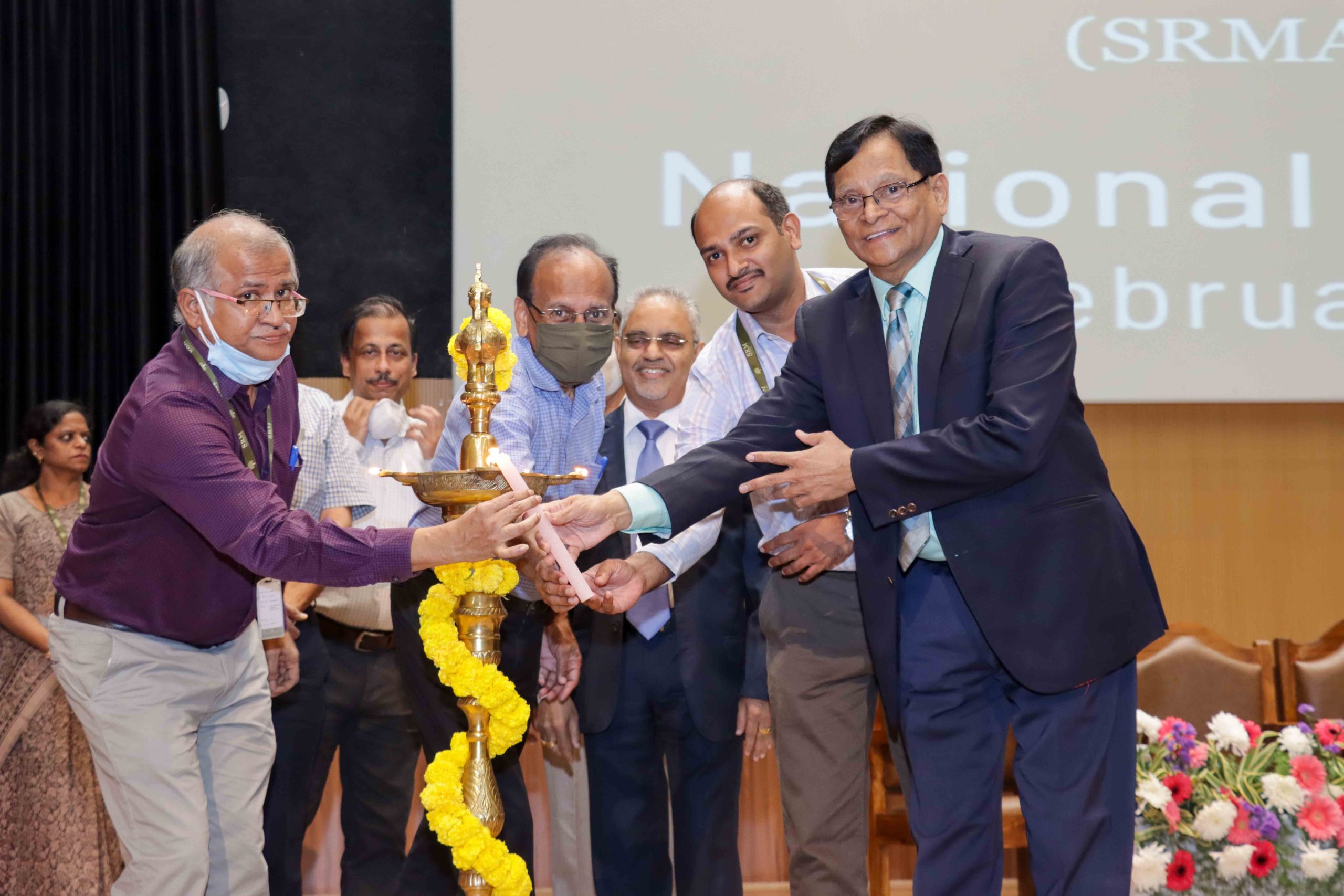
Every year National Science Day is celebrated across the nation to commemorate the discovery of the Raman Effect by Indian physicist Sir CV Raman, a milestone in the realm of science that won him the Nobel Prize. SRM University-AP, a pioneering multi-stream research institution has also celebrated the occasion of National Science Day on February 28, 2022, with immense pride, and paid homage to the pre-eminent scientist.
The event was celebrated in collaboration with South Asian Meteorological Association (SAMA) under the 2022 theme ‘Integrated Approach in Science and Technology for a Sustainable Future’ to exploit the burgeoning possibilities in the scientific domain for a healthy and prosperous future. Distinctive talks on the works of Nobel laureates of Physics, 2021 by notable scholars, Prof. T. Yasunari, Advisor, RIHN KCCAC, Japan and Prof. Krishna Achuta Rao, Head, CAS, IIT-Delhi were also arranged to shed light on the latest research practices and developments.
The inaugural address was delivered by Prof. V.S. Rao, Vice-Chancellor. He appreciated the students for their enormous participation in the activities organised as part of the celebration, and for rightly articulating the significance of the focal theme through their representations. “There cannot be a better example than the pandemic which demonstrated the integration of science and technology” he asserted. He also recollected the invaluable contributions of Indian scholars like Dr Jagadish Chandra Bose, Srinivasa Ramanujan, Homi J Bhabha and Vikram Sarabhai who transformed the scientific outlook of the country.
Prof. BV Babu, Dean of School of Engineering and Sciences addressed the gathering and briefed about the relevance of taking science and technology together towards a sustainable future. He emphasized the relevance of non-conventional sources of energy in the times ahead and the social benefits associated with them. He further elaborated on the concept of digital lean solutions and their impact on our lives.
Prof. D Narayana Rao, Pro Vice-Chancellor presided over and expressed concern over the inescapable repercussions of climate change and ruthless exploitation of nature. He also recognised the pivotal role SRM University-AP continues to play in creating talents and masterminds through intensive research practices and exposure to global technological facilities.
Prof. Someshwar Das, Convenor SAMA introduced the organisation, South Asian Meteorological Association and briefed about the numerous remarkable activities it carried out since its inception. He also highlighted various plans the organization intends to execute in future.
Further, there were talks on the works of Nobel Laureates 2021. Prof. T. Yasunari explicated the major works of the Nobel Laureate Prof. Syukuro Manabe and reiterated Manabe’s philosophy of ‘Simplicity and Balance’ in Climate Modelling. Prof. Krishna Achuta Rao threw light into the Stochastic Climate model, the innovation of another Nobel winner, Klaus Hasselman. A question-answer session was also organised with both the speakers for the students to gain insight into global scientific developments.
An array of programmes including science exhibition, laboratory visit, and quiz competition was also organised as part of the science day celebrations. Nearly 400 students from around 20 schools in and around the city of Guntur and Vijayawada actively participated in the events and expressed their inquisitive spirit and passion for science.
Awards and certificates were distributed to the winners and all other participants by the dignitaries. Students who have come up with innovatory models such as bluetooth car, human rescue detection system and many more were specially acknowledged and given mementoes. Dr Premkumar, Registrar proposed the vote of thanks and expressed his gratitude to everyone, especially the students for their enthusiastic participation.
The programme was made a huge success with the active and timely coordination of the organising committee, effective participation of the students and cooperation of every supporting staff and student at the university. SRM University-AP surges ahead as a revolutionary institute in research and developments and intends to disseminate scientific temper among the students to make phenomenal contributions to the world of science.
- SRM University-AP launches Aadigyan: To promote India’s cultural knowledge tradition February 26, 2022
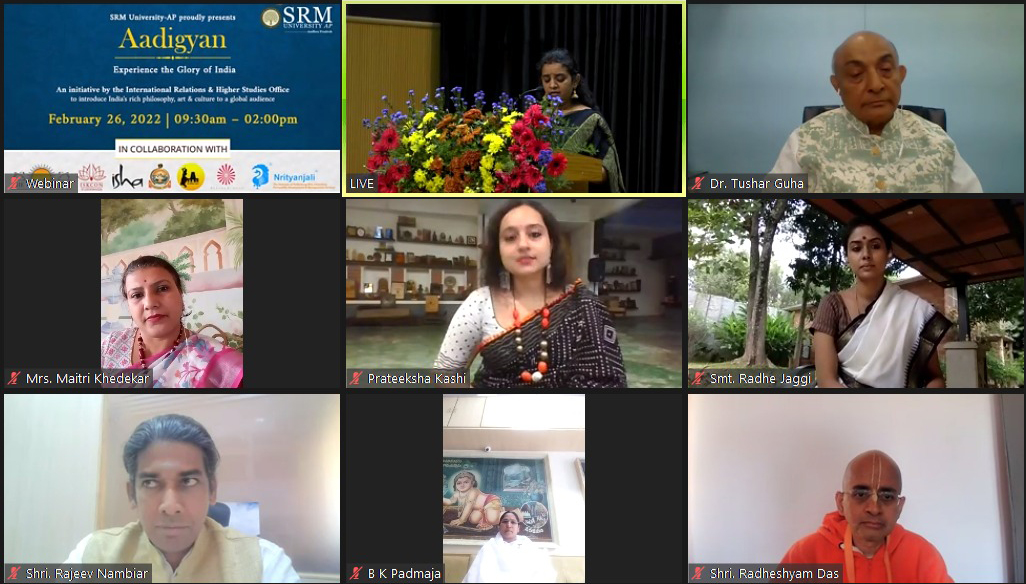 Special invitees shower wishes to the initiative
Special invitees shower wishes to the initiativeAadigyan, the flagship initiative of the International Relations and Higher Studies office at SRM University-AP, has been launched in a grand ceremony held at the auditorium in hybrid mode on February 26, 2022. Chief guest Shri G Kishan Reddy, Minister of Tourism, Culture, and Development of the North Eastern Region of India, shared the message that it is heartening to launch Aadigyan, which embarks the beginning of sharing Indian values, culture, heritage and art to a global level. “I wish Aadigyan a grand success and congratulate SRM University-AP for providing this wonderful opportunity to the world”, he added.
Prof V S Rao, the Vice-Chancellor, launched the promo video of Aadigyan and remarked that Aadigyan aims to integrate education with the art and culture of India. Dr Naga Swetha Pasupuleti, Associate Director – International Relations and Higher Studies, introduced the partnering institutions- ISKCON; The Art of Living; The Temple Dance; Nrityanjali; Isha Foundation; Rajyoga Education & Research Foundation, Brahma Kumaris; and Vivekananda Institute of Human Excellence, Ramakrishna Math, Hyderabad.
Introducing the Project Samskriti to the students of SRM AP, Smt Radhe Jaggi from Isha Foundation highlighted the need to nurture, conserve, and expose the majesty of traditional Indian arts when these art forms are being practised as hobbies.
As an alumnus of SRM, Shri Radheshyam Das, Founding Director of VOICE (Vedic Oasis for Inspiration Culture and Education), and President of ISKCON, Pune, appreciated the efforts of SRM AP to gear education towards human-making rather than money-making.
“Dance goes beyond the realm of physical reality. Indian dance forms are widely used for therapeutic purposes” highlighted Prateeksha Kashi, Indian Kuchipudi Dancer & Actress. Smt. Himansee Katragadda, Founder – The Temple Dance, further shared her happiness to offer Kuchipudi dance courses to the students of SRM AP.
Smt. BK Shivani, renowned Motivational Speaker & Spiritual Teacher from Brahma Kumaris elucidated the need for living in the fundamental equations of life. Brahma Kumaris will be offering courses on value education and holistic health as a part of Aadigyan.
“Let us not forget the identity and dignity of our own culture and traditions”, said Dr Tushar Guha, Founder & Chairman, Nrityanjali Group, while expressing his pleasure to partner with SRM AP. “Diversity is the basis of existence, and India celebrates diversity”, added Shri. Rajeev Nambiar, Director – Institutional Programs/National Teachers Coordination, The Art of Living.
Other special invitees who graced the virtual ceremony with their inspiring words include Dr Rewant Vikram Singh, Diplomat – High Commission of India, Srilanka; Ms Goli Gabby, Health and Wellness Coach and Educator; Swami Bodhamayananda, R K Math; and Ms Jennifer Mawulolo Ami Ametewee First Secretary – Trade, Tourism & Culture Officer High Commission of India, Ghana.
The event witnessed several cultural performances by the students of SRM University-AP. Ms Revathi Balakrishnan, Assistant Director- Student Affairs, thanked all the distinguished invitees and audience who joined the virtual inaugural ceremony of Aadigyan.
Continue reading → - BBA at SRMAP: Career Prospects and Opportunities February 26, 2022
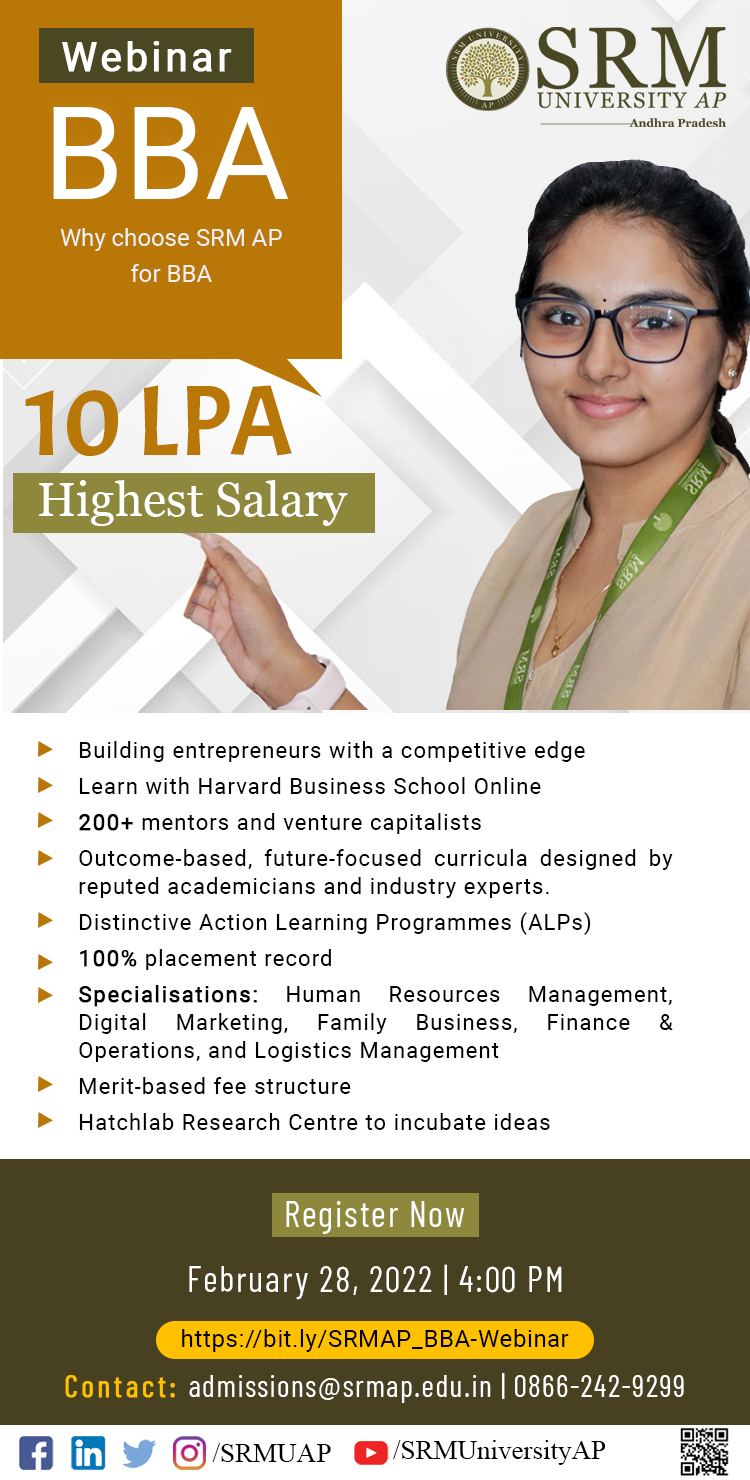
BBA is the right choice of programme for aspirants planning to build a career in business administration and management. It serves as a doorway to multiple sectors such as sales, finance, marketing, education and many more. The course is open to students of any discipline, making it a much sought-after programme among aspirants. Students are imparted with practical knowledge and exposure in management practices to acquaint them with different aspects of business administration. SRM University-AP is organising a webinar on Why Choose SRMAP for BBA? on February 28, 2022, at 4.00 PM.
At SRM University-AP, students are encouraged to receive training in complex and dynamic work environments through the distinctive approach of ‘Action Learning Programmes (or ALPs)’. The curriculum is designed to equip them with critical thinking skills, analyse complex qualitative and quantitative problems and exhibit organisational leadership. Also, the continuous Industry-Connect programmes facilitate experiential learning and enable students to apply the practical wisdom they have gained. Moreover, students are provided with an opportunity to learn with Harvard Business School Online and get exposed to international business practices.
Join the webinar to know more about the specially curated BBA programmes at SRM University-AP and enlighten yourselves about contemporary management practices.
- Choose between IELTS, GRE ,TOEFL and PTE February 26, 2022
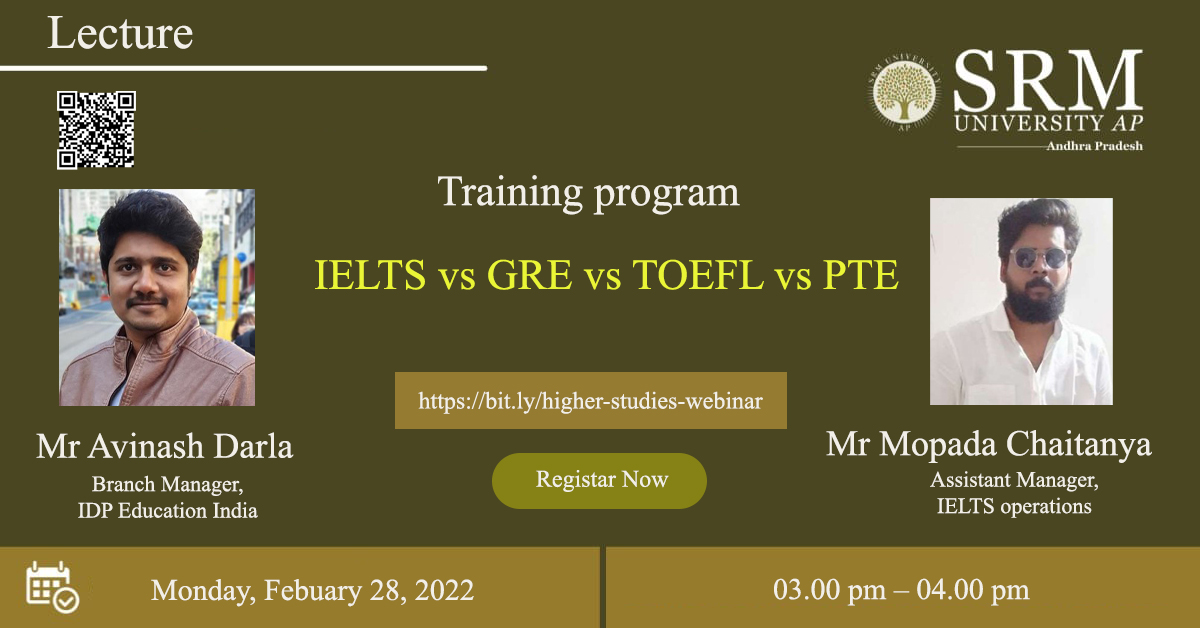
Do you dream of an international degree? Qualifying an English Language Proficiency Test is the initial step towards your dream. Having an array of standardised language tests to choose from, such as IELTS, GRE, TOEFL, PTE etc., students are often perplexed to reach a decision. The test you give depends on many factors; the country you prefer to move to, the university you have applied for, and the course you have enrolled in. An accurate understanding of each language test is therefore essential to make your journey easier.
The office of International Relations and Higher Studies at SRM University-AP is organising a webinar: Lecture on Training Programmes: IELTS vs GRE vs TOEFL vs PTE as part of the Higher Education Series to educate students on the purpose of different language tests. Each test has a different pattern, grading structure, and testing method. The lecture intends to throw light into the distinct features of each test and the learning approaches they require.
Become a part of the workshop and learn to ace any English language test.
Date: February 28, 2022
Time: 3.00 pm to 4.00 pm IST
About the Speakers
Mr Avinash Darla is the Branch Manager of IDP Education, India. He has 11+ years of experience in the Education Industry- Training, Overseas & Domestic Education. He has served as the Business Head of Abroad Avenue, Branch Manager of Akash Education Pvt Ltd, State Head of Fliplearn Education India, etc. He has also received multiple certifications from esteemed organisations like Qualified Education Agent Certification – PIER International, Australia; Study & Live in UK Certification – British Council & Future Learn; Business Strategies Education & Development- University of Hertfordshire, UK and many more.
Mr Mopada Chaitanya is the Assistant Manager of IELTS OPERATIONS, Telangana. He has also been working with IDP Education since 2014. He holds a degree in Bachelor of Business Management.
Continue reading → - French Delegation in SRM University-AP discusses prospects of academic collaboration February 26, 2022
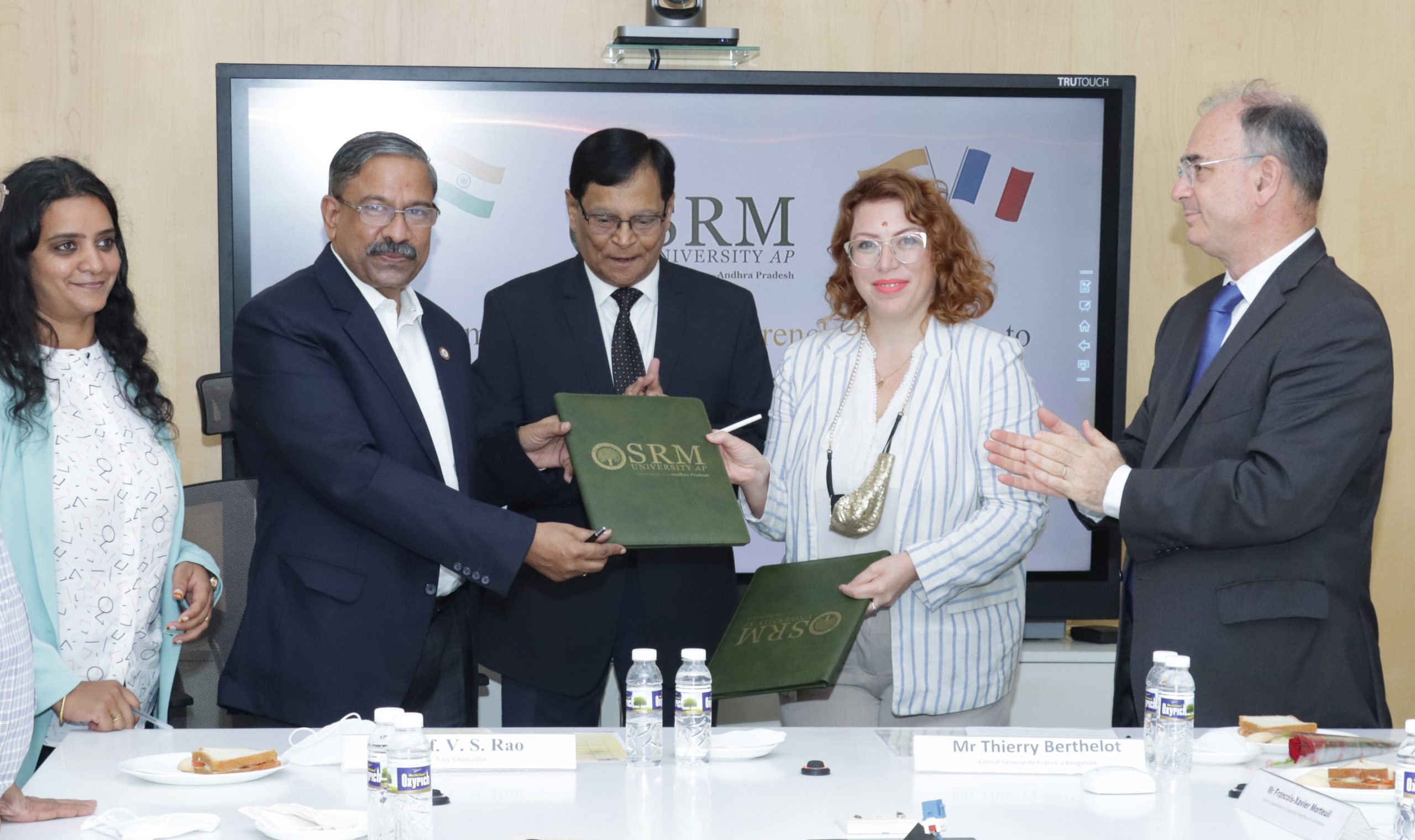 MoU inked with Rennes School of Business
MoU inked with Rennes School of BusinessAs part of an official visit to Andhra Pradesh, members of the French Delegation visited the SRM University-AP campus on Friday, 25 February 2022. An MoU has been signed between Rennes School of Business, France and SRM University-AP on student exchange, curriculum development, and articulation programmes. University Vice-Chancellor Prof V S Rao called the MoU “an important milestone for SRM AP” and welcomed students from France to India.
Mr Thierry Berthelot, Consul General de France a Bangalore, reaffirmed the MoU between India and France in the number and quality of student exchanges. “We have reached the aim of 10,000 Indian students by 2020; now, we look forward to increasing the number of Indian students in France significantly to 20,000 by 2025”, he added. The signing of the agreement for the mutual recognition of degrees will facilitate the pursuit of higher education by Indian students in France and French students in India and enhance their employability. The delegation emphasised that the collaboration with Rennes School of Business will further equip students of SRM University-AP to gain professional experience and job opportunities around the world. Mrs Maud LE BARS, South Asia Area Manager Rennes School of Business and Conseillere du Commerce Exterieur de la France, highlighted the student and faculty diversity in France that surpasses language barriers.
Consequently, Dr Naga Swetha Pasupuleti, Associate Director – International Relations and Higher Studies, talked about the strong partnerships SRM AP holds with QS ranked global universities and especially EFREI, France. The delegation interacted with the students and faculty members of SRM University-AP and discussed various possibilities of international internships and study abroad opportunities.
Mr Francois-Xavier Morteuil, Attache Consulaire pour la Coopération Scientifique et Universitaire; Mrs Ambika Anilkumar, Deputy to Attache Consulaire; Mrs Vasudha Murlikrishna, Campus France Manager Hyderabad; Mrs Vidya Suresh, Country Manager ESIGELEC (engineering school in France); and Mr Samuel Berthet, Director of Alliance Francaise of Hyderabad were part of the delegation and explored the university campus.
Pro-Vice-Chancellor Prof D Narayana Rao, Registrar Dr R Premkumar, Deans and Associate Deans of all schools were present in the discussion pertaining to the future scope of collaborations with French academic institutions.
Continue reading → - The Future of Technologies February 26, 2022
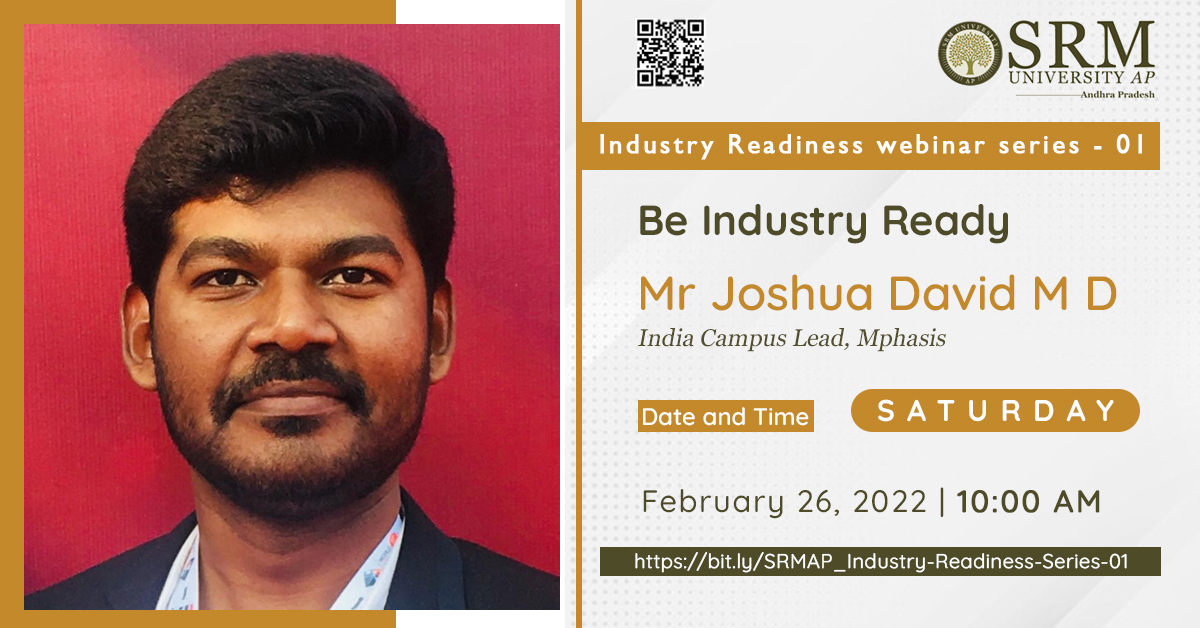 The Department of Corporate Relations and Career Services is bringing forth the first edition of the Industry Readiness webinar series for the students to guide and prepare them to get placed with the top recruiters.
The Department of Corporate Relations and Career Services is bringing forth the first edition of the Industry Readiness webinar series for the students to guide and prepare them to get placed with the top recruiters.Join Mr Joshua David M.D for an exciting session and pave your way to the best possible career option for you.
Date: February 26, 2022
Time: 10.00 am IST
About the Speaker:
Joshua has over 16 years of rich experience in the HR function specializing in all aspects of Talent Acquisition which includes Campus Hiring, Lateral Hiring, Recruiting Audit & Compliance majorly across Services, Business Process, ITES & Aviation industries.
His Education background includes Bachelors and Master’s Degree in Labour Management (BLM & MLM) from the reputed Tamilnadu Institute of Labour Studies (TILS) and Masters in Human Resource Management (MHRM) from Pondicherry University.
He had earlier been associated with some of the top Multi National organizations like: HCL Technologies | Kingfisher Airlines | Wipro Technologies | Satyam Computers (now Tech Mahindra) | Cognizant Technology Solutions and Hexaware Technologies.
Currently, Joshua is associated with Mphasis, Chennai since June, 2021 and is Managing Talent Acquisition – India Campus Hiring (Across BU’s and Functions)
Joshua is passionate about training and has a wide range of experience in addressing and grooming future aspiring students and educate them on the significance of understanding the basis in whatever they do. Through this initiative he has addressed more than 1 Lac students across India.
Joshua has also been associated with Professional HR Forums like NHRD, NIPM, CHROMA and HR Sangam. He is also the Executive Committee member at CHROMA
Do not miss this session and prepare yourself to to stand out among your competitors. Join the webinar on February 26, 2022 at 10.00 am IST
- Coping with Social Anxiety by Ms Sridevi Srinath February 25, 2022
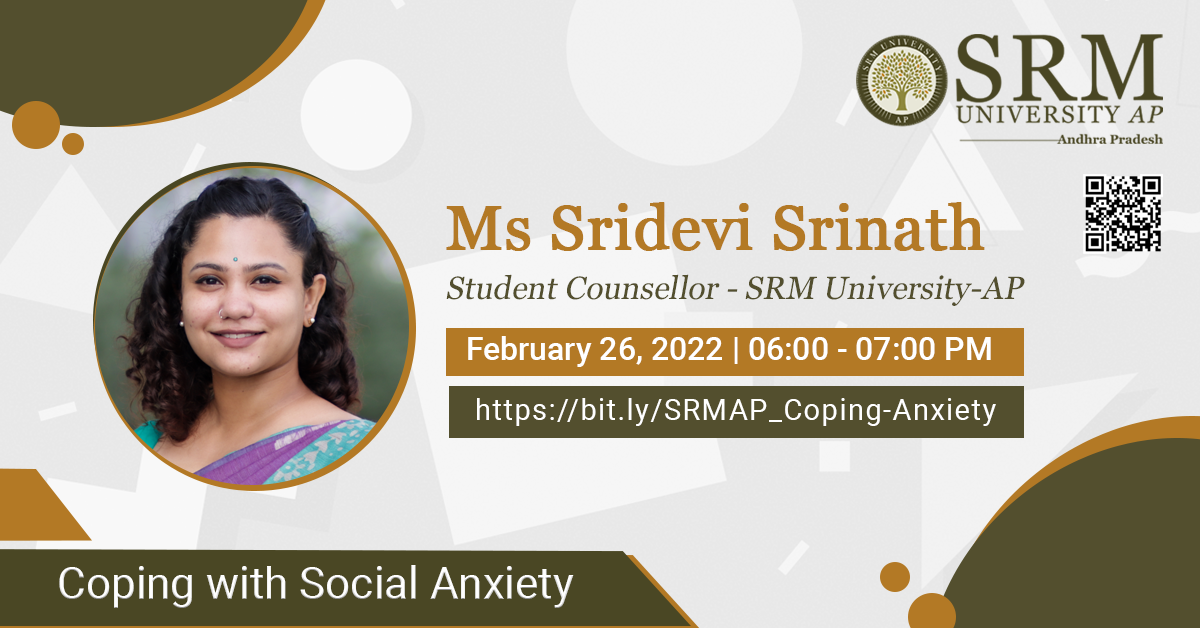 Feeling out of sorts in a gathering is not unusual. Especially when all attention turns to you. Coping with social anxiety is a necessary step to being present in the moment and turning an adverse situation in your favour.
Feeling out of sorts in a gathering is not unusual. Especially when all attention turns to you. Coping with social anxiety is a necessary step to being present in the moment and turning an adverse situation in your favour.The Department of Student Affairs is bringing forth an informative and interactive session on Coping with Social Anxiety by Ms Sridevi Srinath to help the students understand their emotions and deal with social situations smartly and effectively.
Date: February 26, 2022
Time: 6.00 pm IST
Join the session to learn more about coping with social anxiety.
Continue reading → - Pursue Your Dream of Overseas Education with SRMAP February 25, 2022
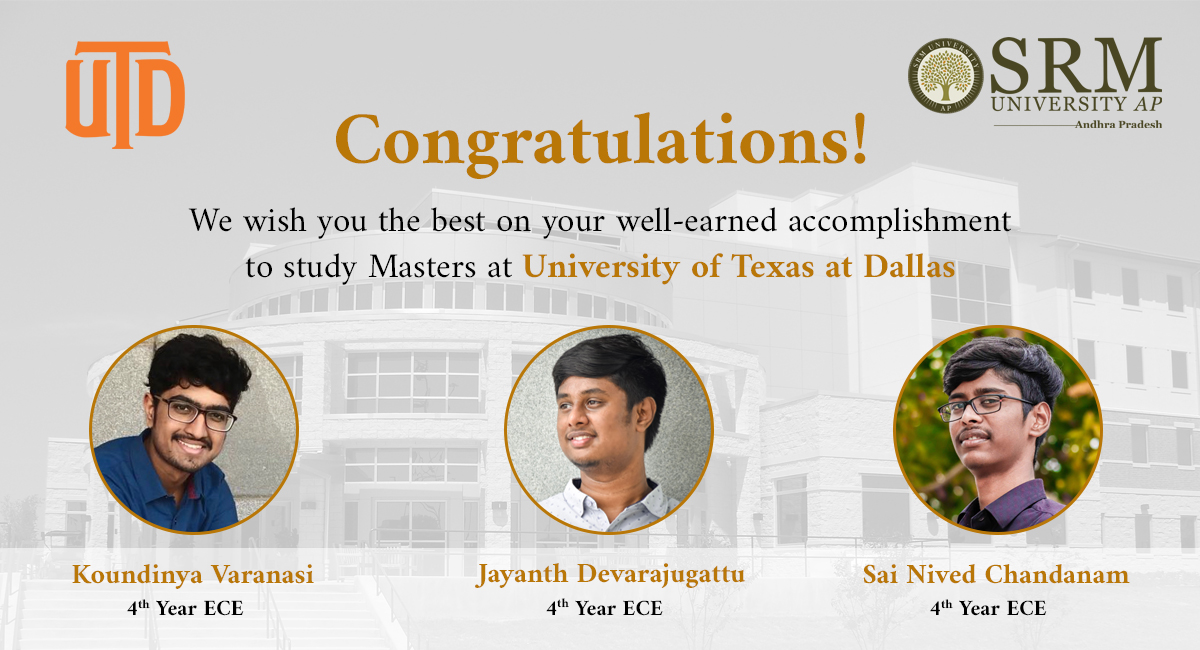 Pursuing higher education in universities of international repute is perhaps a long-cherished dream of every student. SRM University-AP has always been at the forefront in providing the right avenues for students to explore their inherent talents and in equipping them with the right skillset through educational practices and research programmes of global standard.
Pursuing higher education in universities of international repute is perhaps a long-cherished dream of every student. SRM University-AP has always been at the forefront in providing the right avenues for students to explore their inherent talents and in equipping them with the right skillset through educational practices and research programmes of global standard.It is an honour for SRM University-AP to announce that three of our students; Varanasi Koundinya, Sai Nived Chandanam and Jayanth Devarajugattu of the Department of Electronics and Communication Engineering have secured admission in the University of Texas at Dallas to the Master of Science in Computer Engineering programme for the Fall 2022 semester.
Exposure to state-of-the-art technological facilities and involvement in research-oriented pedagogical practices enable students to outperform in a world where technology is evolving at a rapid pace. Courses anchored in a multi-stream framework empower students to specialize across disciplines, thereby expanding their choice of higher studies in and outside the country.
In the words of Jayanth Devarajugattu, a strong collaboration of the university with international universities and industries across the globe have been of immense help to seize an opportunity for overseas education. He also marked his gratitude to the faculty members who have provided him with effective guidance throughout the research. “I am extremely grateful to Ramesh Vaddi sir, Siva Sankar sir, Anirban sir, Gangi Reddy sir for guiding us throughout the process by helping us choose the right university and issuing a letter of recommendation”, he said.
Associating with faculty members on various research projects will always offer new insights to students to think differently. “Dr Ranjit Thapa sir with his teaching and research work inspired me the most in pursuing my masters, I look up to him”, said Sai Nived.
All of them expressed their gratefulness to the university for endowing them with appropriate training which helped them maintain good grades, conduct research and publish papers. “Your CGPA and paper publications play a crucial role in making into an international university of your choice”, they mentioned.
The Inter-Disciplinary Experiential Active Learning (IDEAL) pioneered by SRM offers flexibility in course curriculum, thereby giving students the freedom of curating syllabus with respect to their interests and aspirations. Fostering an environment of academic freedom and prioritizing the interests of students in line with the demands of present times distinguish SRM University-AP as an emerging university of world-class standard. Working towards the dreams of students has always been the driving force behind the advancement of SRM University-AP.
- Digital Twins : By Professor Perumal Nithiarasu February 25, 2022
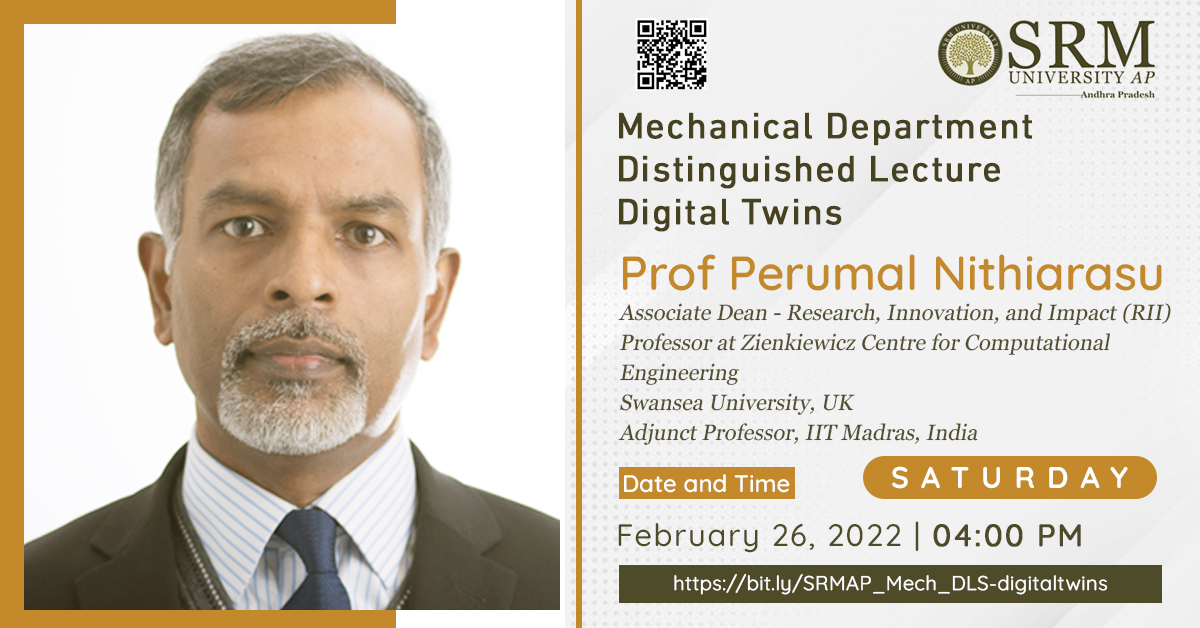 The Department of Mechanical Engineering is bringing forth the next edition of Mechanical Department Distinguished Lecture with Professor Perumal Nithiarasu,Associate Dean – Research, Innovation, and Impact (RII), Professor at Zienkiewicz Centre for Computational Engineering, Swansea University, UK, and Adjunct Professor, IIT Madras, India.
The Department of Mechanical Engineering is bringing forth the next edition of Mechanical Department Distinguished Lecture with Professor Perumal Nithiarasu,Associate Dean – Research, Innovation, and Impact (RII), Professor at Zienkiewicz Centre for Computational Engineering, Swansea University, UK, and Adjunct Professor, IIT Madras, India.Date: February 26, 2022 (Saturday)
Time: 4.00 pm IST
About the Speaker:
Perumal Nithiarasu is the Professor and Associate Dean for Research, Innovation and Impact in the Faculty of Science and Engineering. Previously he served as Director of Research in the College of Engineering, Swansea University (2018-2021). He was also a Deputy Head of the College of Engineering and held the position of Dean Academic Leadership (Research Impact) at Swansea University between 2015 and 2021.
Dr Perumal Nithiarasu served as the Head of Zienkewicz Centre for Computational Engineering for 5 years (2013-2018). He has also served in several SU committees including HR Research Working Group as a chair leading the HR excellence award submission and REF14 impact and appeal committees as a member. He has proposed and implemented a public lecture named after the father of the finite element method, Professor O.C. Zienkiewicz.
A Mechanical Engineer by training, Dr Perumal Nithiarasu has extensive experience in teaching various disciplines. His research areas of interest include computational fluid dynamics/biomedical engineering and recently AI. He has been working in these areas for more than 25 years and has published a large number of articles and books (h-index, 40 – google scholar).
Well known internationally for his work, Dr Perumal Nithiarasu was awarded the Zienkiewicz silver medal of ICE London in 2002, the ECCOMAS Young Investigator Award in 2004 and the prestigious EPSRC Advanced Fellowship in 2006. The group led by Dr Nithiarasu currently consists of 10 academic staff, more than 20 post-docs and research students.
Dr Perumal Nithiarasu currently co-chairs 2 international conferences, including the well-known Computational and Mathematical Biomedical Engineering series (CMBE series, www.compbiomed.net) founded by him. He is also the founding editor in chief of the International Journal for Numerical Methods in Biomedical Engineering, published by Wiley-Blackwell. Dr Perumal Nithiarasu was elected to the fellowship of the Learned Society of Wales in 2018.
Abstract of the Talk:
Building digital twins (DTs) of engineering systems and processes is a real challenge. While the potential offered by DTs in designing, monitoring and decision making is hugely appreciated by researchers, building a comprehensive DT requires a strongly multidisciplinary approach. This lecture will discuss the definitions, classifications, and challenges of constructing a DT. The talk will try to define DTs suitable for engineering applications. The discussion will also focus on the availability or lack of tools for building DTs. In addition, the talk will also cover various topics such as data, AI, and physics-based models. Finally, the lecture will use some energy and healthcare examples to provide context to the DTs.


